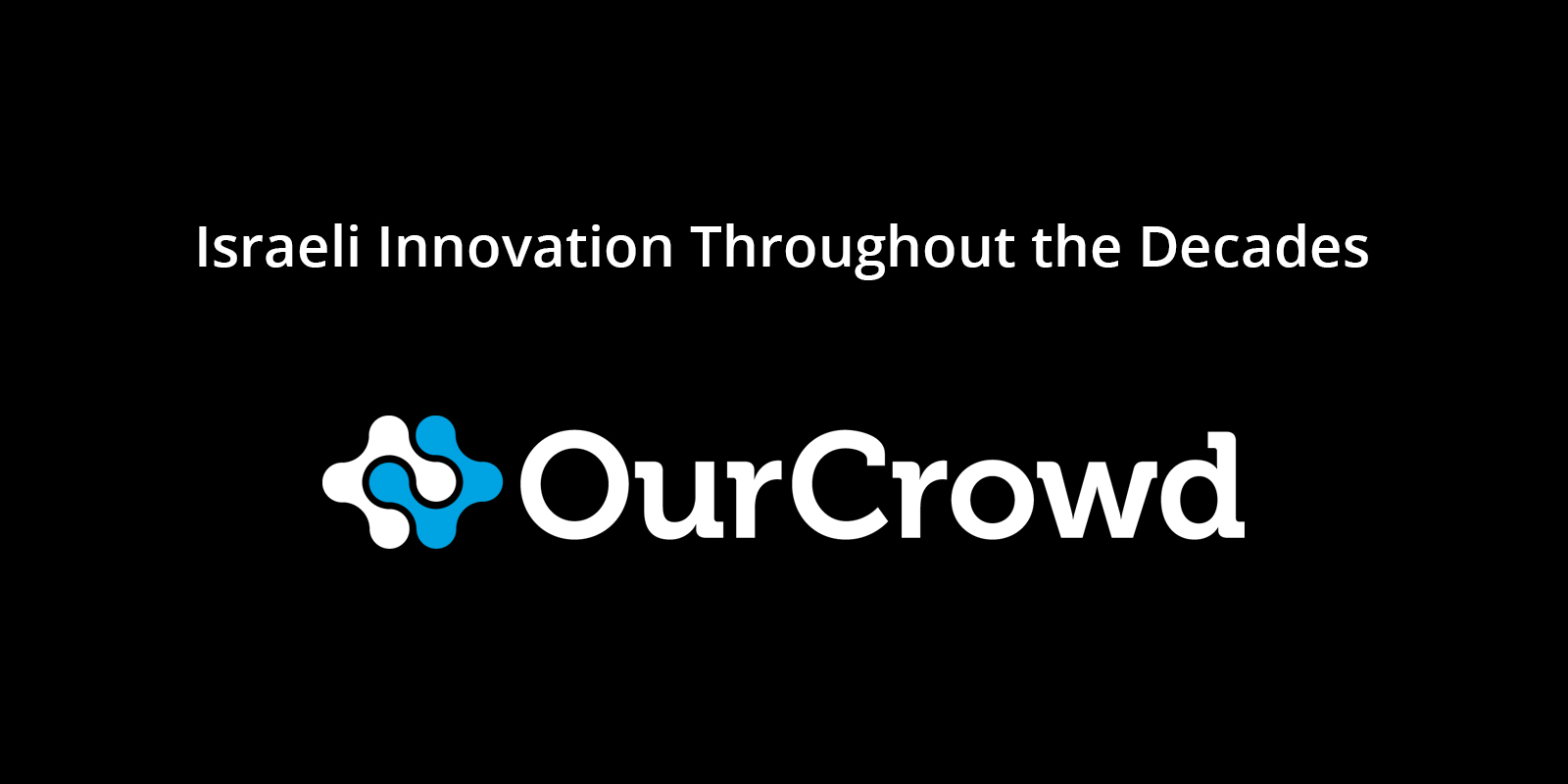A look at Israeli innovation throughout the decades – and beyond
In just 70 years, the world’s only Jewish state has managed to cement its reputation as a global high-tech powerhouse in the face of considerable odds. Despite a precarious geopolitical environment with little natural resources, Israel has become home to major players in the high-tech industry and boasts one of the world’s most technologically literate populations.
Seven decades ago it would have been hard to imagine that Israel would not only have pioneered agriculture and water tech but is forging ahead in today’s hottest sectors – artificial intelligence ($1.1B in 2017 capital raised), cybersecurity ($791M in 2017 capital raised), automotive ($810M in 2017 capital raised).
In 2017, $5.2B of venture capital poured into Israel – since 2013 that totals $20.2B (according to IVC ZAG High Tech Survey 2017). Last year alone, Israel saw $23B in exits. Israeli high tech is on fire – and the world knows it.
This extends to the Far East. Last year, Israel saw the highest number of visitors from China ever – up 75% YoY according to the Wall Street Journal. At OurCrowd, we host delegations and visitors throughout the year, and in 2017, the country represented the most was China.
Israel and India are enjoying closer relations than ever, with Israel hosting the first visit of an Indian Prime Minister – Narendra Modi – in 2017, with PM Benjamin Netanyahu returning the visit with a trip to India early this year. We had the privilege of sending an OurCrowd representative with the Prime Minister to strengthen business relations and found an eager audience for collaboration beyond defense into almost every aspect of Israeli tech. The trips resulted in nine agreements, including cybersecurity, space, and AgTech exploration[1].
For OurCrowd, we take great pride in being at the nexus of it all; being part of world-shifting tech startups and helping them grow, and bringing the world’s attention to this vibrant startup ecosystem. In honor of Israel’s 70 years, we have put together a snapshot of where we’ve come in 70 years – how tech innovation throughout the decades has led Israel to the forefront of so many sectors today.
1950s: Water Tech
Faced with dry conditions and difficulty accessing reserves, Israel was pressed to find solutions for water. In the 1950’s, Israeli inventor Alexander Zarchin began developing the first desalination technology, kicking off the path for Israel to become a world leader in innovative water saving solutions.
Today, Israeli companies are improving water saving abilities for farmers around the world like CropX, and are even creating water from air, as AirGen is doing.
1960s: AgTech
Israel’s creative agriculture solutions allowed the country’s desert and swamplands to bloom. From the development of a drip irrigation system, Taftefet, in 1965, to famously creating the world’s first cherry tomatoes, Israel has led in genetic and high yield solutions used worldwide, especially in large agricultural countries like India and China.
Today, Israel’s AgTech sector is bringing fortune to the Israeli economy, notably with Netafim’s 2017 exit for $4B. Startups are continuing this legacy by producing ever better yields and less crop damage through pesticide alternatives like Eden Shield, and applying advanced computer mapping to fields, like Taranis.
1970s: MedTech
In 1972, Professor Isaac Kaplan developed the Sharplan CO2 laser at Jerusalem’s Hebrew University, to be used for highly precise surgeries. Since then, Israel has led the way in medical breakthroughs, including the famous pill-cam.
Today, Israel’s academic and startup prowess is creating miracles in cancer-fighting therapies. Israel, the first fully digital healthcare system in the world, is also leading the way in digital health and AI applications; Zebra Medical Vision is challenging traditional diagnostics through offering radiology scan readings for just $1.
1980s: Air and Space Tech
With the celebrated launch of Israel’s first satellite Ofeq in 1988, Israel strengthened its foray into air and space technology. It later developed innovative military gear, like hi-tech air force helmets and began utilizing drone technology for military and industrial use.
Today, Israeli startup NSLComm is developing nanosatellites for better communications and Airobotics is using unmanned drones to protect and monitor industrial sites.
1990s: IT and Cybersecurity
In the 1990’s Israel began exploring the wonders of the internet and computers, most famously developing the original instant messaging service ICQ and inventing the disc on key, or USB stick. 1993 would also see the founding of CheckPoint, which was an early indicator of the next decade’s cybersecurity boom
Today, Israel is considered a global leader in cybersecurity innovation, second only to the U.S. with companies all over the world coming to find solutions to cyber attacks like wannacry, and 2017’s notorious NSA leak, as well as thinking ahead to cybersecurity for Autonomous Vehicles, like Argus Cyber Security, acquired by Continental AG in 2017.
2000s: Personalization and Computing
In 2004, Intel released its Centrino microprocessor, establishing Israel at the forefront of R&D. In 2006 Wix made it easy for anyone to create their own website. Community-sourced navigation app Waze was founded in 2008 with real-time individual traffic updates, acquired by Google five years later for over $1B.
Today, Israeli startups are providing more access and personalization to consumers, with retail apps visualizing purchases in 3D like Snap acquired Cimagine, and mobile, on-demand services, even in traditional sectors like beauty.
2010s: Defense Tech and Autonomous Vehicles
With the Iron Dome, Israel started intercepting short-range missiles over civilian areas, altering civil defense. Today, Iron Dome software developer mPrest is now securing power grids from New York to New Zealand.
Israelis startups are altering defense tech like drones for other purposes. Edgybees is expanding drone tech into public safety and companies are adapting computer vision and vehicle autonomy for safer roads.
Tech in the Next 70 years…
It’s been a quite a distant journey in such a relatively short time, and the road extends far beyond this point. There’s no time to lean back and assume that Israel can continue to lead the world in innovation without effort, especially with global high tech competition heating up. Yet, living in a land which is made up of more than half desert, surrounded by hostile neighbors, and choosing to constantly look forward makes Israelis optimists to a fault. And optimists can make the impossible possible.
Cheers to the next 70 years!
[1] http://www.xinhuanet.com/english/2018-01/15/c_136897244.htm








